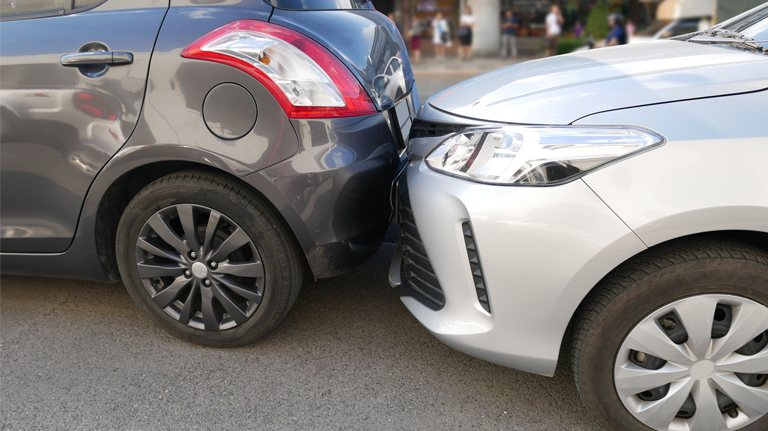
Here's what you should do if you are involved in an accident this holiday
Share
It’s Christmas time, that wonderful time of the year when families and friends take a well-deserved break and head off to a holiday destination or to visit loved ones for the festive season.
Many more of us will be travelling within the country this year due to the ongoing impact of the coronavirus lockdown, which means more passenger vehicles on the road in addition to the trucks, buses and taxis.
Being eager to reach your holiday destination should serve as no excuse to ignore the road rules – and this is especially important at this time of the year.
Safety for yourself, your passengers and your vehicle should be the number one priority, but you also need to be alert and aware of the traffic around you on the road, pedestrians, particularly when you are driving through smaller towns and rural areas where animals or livestock could wander into the street.
If you are a newly-licensed driver, it is even more critical to make sure all your focus and concentration is on the road while you are behind the wheel.
How to be prepared for an accident while on a road trip
“No matter how experienced a driver you may be, accidents do happen, unfortunately. Whether it’s a minor bumper bash or something more serious that could involve injuries, being involved in a vehicle accident is both a stressful and traumatic experience,” says Kutlwano Mogatusi, WesBank communications specialist. “It is important to record all the events of the accident as accurately and precisely as possible at the time of the incident, as this will assist with the ensuing insurance claim and reporting the accident at the nearest police station.”
To ensure you know what to do following an incident, Mogatusi offers the following advice and tips:
At the scene of the accident
- Switch on your hazard lights.
- All vehicles involved in the collision need to remain at the scene.
- Place a safety triangle sign a fair distance behind your vehicle if it is safe to do so.
- If you are not injured, check on the other drivers and passengers – if someone is seriously injured, call an ambulance (remember that you can call 112 from any cellphone network in South Africa in an emergency: the call centre will connect you to an emergency service closest to you).
- If any of the vehicles’ passengers or pedestrians have been injured or damage to any property has occurred, it is law in South Africa to remain at the scene until a SAPS vehicle arrives.
- Using the technology at hand, such as a smartphone, tablet or camera, record as much information as you can of the scene of the accident and take down notes or make a voice recording of everything you can remember about the cause and result of the accident, including the time, date and location.
- Once that is done, and you can do so, move the cars to the side of the road if they are obstructing the traffic flow – but only if it is safe to do so.
- Capture all the details of the other drivers and vehicles involved in the incident: names, contact numbers, vehicle details (make, model, colour), number plate and drivers’ licence numbers and, most importantly, the insurance information of each driver.
- It is also helpful to note the passengers’ personal details involved in the incident and any bystanders or eyewitnesses who observed the incident.
If your vehicle is damaged, cannot be driven and requires towing, only use the towing service authorised by your insurance provider. If you don’t have towing cover with your insurance company, request a quote from the tow truck driver before your vehicle is towed. Write down the name, contact details and vehicle registration number of the tow truck driver, and find out where your car is being taken.
Reporting the accident/incident
You might think recording some minute details is not necessary. Still, all the information you have collated will be handy when reporting the accident at a police station and informing your vehicle insurance company, which you should do as soon as possible after the accident.
The accident should be reported at a police station within 24 hours if they are not at the scene. Ensure you receive an Accident Report number if you are lodging an insurance or third-party claim.
When informing your car insurance company, it is crucial to provide an accurate explanation. Be as honest as possible regarding what caused the accident, plus any injuries to yourself and the damage to the vehicle. Providing false information may get you into trouble and result in the claim being rejected.
When filling in the car insurance claim form, you will need to recall all the accident details, including the location, the weather, the road condition, potholes or a faulty traffic light, for example. You may be required to provide a sketch of the accident scene together with your description for both the police report and insurance purposes.
Repairs to your car
If the accident is the fault of another driver, the other party’s car insurance company is liable to cover the cost of repairs to your damaged vehicle once the claim has been received and approved.
If the other driver is not insured, you or your vehicle insurance provider will have to cover the costs of the repairs to your car. This also applies if the accident was your fault.
“Accidents can happen at any time, and being involved in one can leave you dazed, confused and in shock. Take some time to assess the situation, breathe deeply and try to remain calm. South Africa has an exceedingly high incidence of road accidents, particularly over the festive season,” concludes Mogatusi.
Source: Pritesh Ruthun – www.wheels24.co.za
